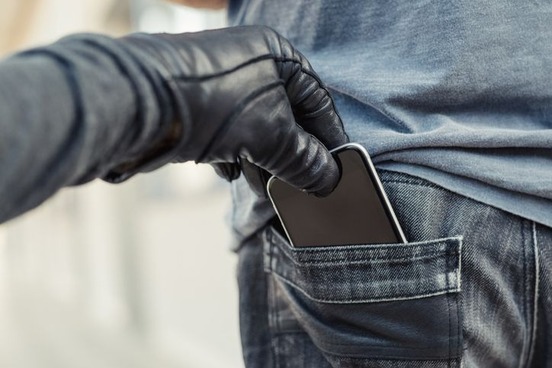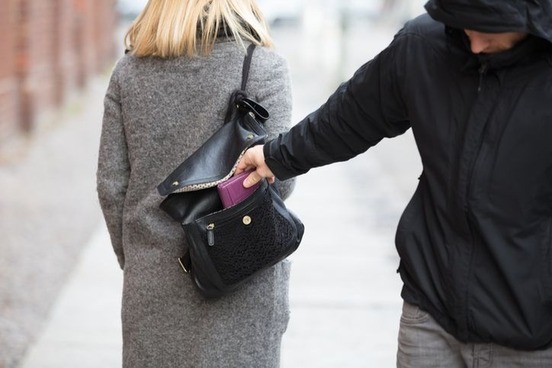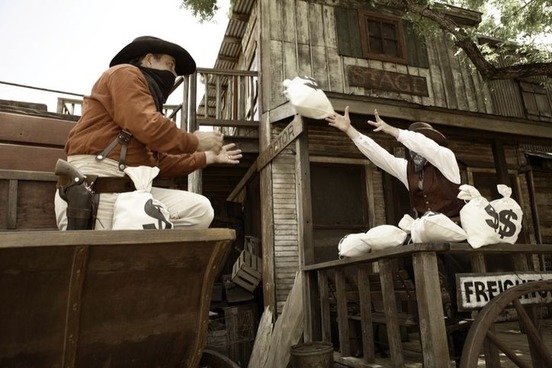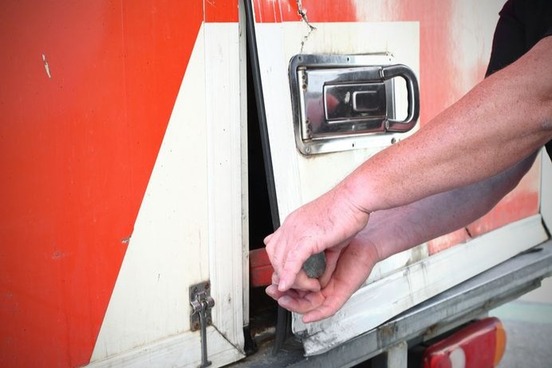We all grow up being told stealing is wrong, and of course it is. But the reality is, it does happen. ranging from petty theft to more serious crimes. It’s an uncomfortable topic, hence people have come up with slang words to refer to it.
Here are some slang words people use to refer to stealing or stealing-related activities.
Slang Words for Stealing (in Alphabetical Order)
Blag
Meaning:
- (Verb) A slang word of British origins. Means to rob someone, normally, in a violent manner.
- Example: I was lazily walking with a brief case at the parking lot when someone beat me up to blag me.
Bleed Dry
Meaning:
- (Verb) To take all of someone’s money or resources. Not necessarily used for robbery or stealing but is often associated with it.
- Example: The taxes are making me bleed dry. I can’t hold my business for much longer.
Bogart
Meaning:
- (Verb) A song in the 1960s called “Don’t Bogart Me” popularized the term. It means to hog, hoard, or steal everything of something.
- Example: Don’t bogart all of the cake. Mom made it for all of us to share.
Boost
Meaning:
- (Verb) A slang word in the United States that may have come from the Scottish Dialect. It means to sneakily steal something.
- Example: I was just innocently checking out the titles at the record store when the manager suspected me of boosting.
Borrowing Without Permission
Meaning:
- (Verb) A euphemistic slang often used in movies. It means to take something or steal it to return it later (or not).
- Example: We are not stealing the car, we are just borrowing without permission from uncle Roger.
Carp
Meaning:
- (Verb) To steal or take something, usually something that is insignificant.
- Example: The kids carped some cookies from the jar because they thought it was for them.
Chav
Meaning:
- (Verb) Originally a derogatory British slang for lower-class youths, it became associated with the act of stealing perpetrated by the aforementioned group.
- Example: Gangs often have tactics to misdirect your focus and chav your belongings.
Clean Out
Meaning:
- (Verb) Similar to Bleed Dry, this slang means to take all of someone’s money and things. Used often in robberies.
- Example: The convenience store got cleaned out by some teenagers during the night.
Cozen
Meaning:
- (Verb) To steal, defraud, cheat someone. The word appeared during the 16th century and was used often in the criminal undergrounds.
- Example: Grant was very much heartless since he cozened his own dad’s savings.
Debo
Meaning:
- (Verb) To steal or take something usually through intimidation. This word is based on “Deebo” in the film “Friday.”
Gaffle
Meaning:
- (Verb) A Bay Area slang that mainly means to acquire something wrongfully, maybe through scamming or stealing.
- Example: My car stereo was gaffled while I was parked for just 10 minutes.
Gank
Meaning:
- (Verb) To be swindled or cheated on something.
- Example: Laurie got ganked when she rented her house out.
Five-Finger Discount
Meaning:
- (Noun) The act of shoplifting or stealing merchandise from a shop.
- Example: Rick used his five-finger discount to get the new iPhone.
Half-Inch
Meaning:
- (Verb) Cockney Rhyming slang for stealing or pinching.
- Example: Daniel half-inched some bread for his sick mother.
Highway Robbery
Meaning:
- (Noun) A scenario in which you pay excess for something and you feel that is akin to you being robbed in broad daylight.
- Example: The price of the new laptops they released is highway robbery.
Horch
Meaning:
- (Verb) Originally a derogatory term that combines “whore” and “roach” but it later became synonymous with stealing.
- Example: You just had to horch a pretty eraser?! Now, we have to get reprimanded.
Knocked Off
Meaning:
- (Verb) To rob or steal.
- Example: CJ and the crew are planning to knock off a bank.
Lift
Meaning:
- (Verb) Dating back to 16th century London, lift was used to describe the act of pickpocketing or stealing.
- Example: Ron, a street kid, lifted the guy’s wallet without him knowing.
Loot
Meaning:
- (Verb) To rob a place of their items or money. Usually occurs in a riot or times of unrest.
- Example: After the aftermath of the manifestations, there lootings left and right.
Misappropriate
Meaning:
- (Verb) In law or the professional setting, it means utilizing funds or resources improperly. It became a euphemistic slang for stealing money and using them for your personal needs.
- Example: The gang boss misappropriated the loot and spent it on expensive vacations, instead of distributing it with us.
Mugger
Meaning:
- (Noun) Someone who attacks and robs you violently. Used often in the UK and other former British territories.
- Example: Muggers are rampant due to the relaxed police force.
Nick
Meaning:
- (Noun) Usage began during the 1860s, nicked was similar to mugging and referred to stealing or thieving.
- Example: Before I knew it, I had my phone nicked from my bag.
Palm
Meaning:
- (Verb) To palm something means to steal it and hide it in your palms.
- Example: Trey would palm a buck from his mom’s purse when she wasn’t looking.
Pinch
Meaning:
- (Verb) A famous British slang associated with pickpockets and thieves.
- Example: Oliver was a street orphan who learned early how to pinch from strangers.
Meaning:
- (Verb) To pocket something means to take something and hide it. This term comes from the fact that thieves would take something and hide it in their pockets.
- Example: It was just wrong that he was proud that he pocketed some cash from his grandpa.
Prig
Meaning:
- (Verb) Originally used in Northern England and Britain, prig means to steal something or acquire something through unfair haggling.
- Example: The little rascal prigged so much in the market that the police were alerted.
Punk
Meaning:
- (Verb) A general term for any bad acts that were done to someone. It may be a simple prank or an act of theft.
- Example: Jackson had to punk someone’s bike just to get in the fraternity.
Rip Off
Meaning:
- (Verb) This slang phrase is mainly used when you get swindled, cheated, or defrauded. However, it can also be used in cases of theft and robberies.
- Example: Anton ripped off the wrong dude. The man is an actual mafia don.
Smash And Grab
Meaning:
- (Noun) A robbery done by smashing a window and quickly taking the goods.
- Example: Trevor was known throughout the neighborhood for his fast smash and grab skills.
Snake
Meaning:
- (Verb) To steal or deceive someone without them knowing.
- Example: The housekeeper snaked my dad’s prized watch collections. She thinks she can easily get away with it.
Snitch
Meaning:
- (Verb) Famously used to refer to when someone betrays you. It can also be used to denote stealing and is thought of as a variation of the word “snatch”
- Example: The baby swiftly snitched the cookies while everyone was distracted.
Swipe
Meaning:
- (Verb) A more gentle and innocent way of saying “stealing.” Very much popularized by “Dora the Explorer.”
- Example: Lupin swiped the diamonds right in front of their eyes.
Take Off
Meaning:
- (Verb) To flee while taking the belongings of someone.
- Example: The fake investment agent took off with all of our savings.
Trouser
Meaning:
- (Verb) In British English, it means to take something unlawfully.
- Example: Jimmy trousered some cash from his mum and dad. Both were screaming when they found out.
Twoc
Meaning:
- (Verb) In England and most parts of the UK, twoc is slang meaning to take a vehicle without the permission of the owner. Twoc has also been used for stealing other objects besides a car.
- Example: His motorbike got twocced by the Grooch Close gang. He might still find it in a chopshop.
Whiz
Meaning:
- (Verb) Stealing or taking. Usually used by small-time pickpockets and thieves in the UK.
- Example: I just whizzed enough cash from that gentleman for the whole week.
Whiz Mob
Meaning:
- (Noun) Refers to a gang or group of pickpockets or thieves in the United Kingdom.
- Example: Whiz mobs often coordinate to prevent police and targets from getting back their items.
Pilfer frequently describes the action of stealing something over and over again in small amounts in the hope that nobody notices it is missing, such as paper clips from the office supply closet or sweets from the cookie jar.
But occasionally the word is used with somewhat humorous connotation for the removal of something the absence of which would be very much noticed:
Overnight Wednesday, someone pilfered a 200-pound, brightly colored log sculpture of cartoon character Mighty Mouse from Wichita artist Christopher Gulick’s Indian Hills backyard.
— Matt Reidl, The Wichita Eagle, 25 July 2018
Swipe carries the suggestion of grasping something hastily (such as with a sweeping motion of the hand) and perhaps without any premeditation.
The owners of Stone Lake Inn near Saylorsburg say their iconic red sign was swiped from the property earlier this week.
«I backed the car up, got out of the car looked all around, looked in the garbage all around and couldn’t find it anywhere,» said Jacki Douglas, Stone Lake Inn.
Douglas runs the Inn with her husband Scott. She says they noticed the sign was in its place on Monday night, but by the next morning, it was gone.
— Carmella Mataloni, WNEP.com (Scranton, Pa.), 11 July 2018
Appropriately, it is believed that swipe is an alteration of sweep. The same word is used for the sweeping motion one makes to slide a credit card through an electronic reader.
To filch means to steal secretly or casually, with the suggestion of snatching something quickly and surreptitiously.
Peter and his family live in a hollow beneath a tree in rural Windermere, England, and gleefully filch produce from the garden of their nemesis, the elderly Mr. McGregor.
— Richard Brody, The New Yorker, 14 Feb. 2018
Filch derives from the Middle English word filchen («to attack» or «to steal») and perhaps from Old English gefylce («band of men, troop, army»). As a noun, filch once referred to a hooked staff used by thieves to snatch articles out of windows and from similar places, giving the word its “snatching” connotation.
If you know that the adjective appropriate means “fitting,” as in “wear attire appropriate for the occasion,” then the verb appropriate might strike you as strange. It can mean to use or assign something for a particular purpose, but also to take exclusive possession of something belonging to another or shared by a community.
Appropriate can also refer to the use or borrowing of an idea or creation in an improper way:
But it turns out her runway show not only appropriated the indigenous cultures of the Americas, but it also appropriated another designer’s entire line of swimwear. Several of Ulson’s designs looked exactly like swimwear maker Bfyne’s line from 2017 called the Sahara. Bfyne is a swimwear line that was established in 2014 by Nigerian designer Buki Ade.
— Madeleine Marr, Miami.com, 19 July 2018
Related to our word command but coming from French (via Afrikaans), commandeer suggests a seizing control of something, such as a naval force seizing a vessel it needs to fight a battle. When you commandeer something in general, you take arbitrary or forcible possession of it even though it’s not yours. It often applies to things not belonging to or not meant to be in the possession of any individual:
The occupation, led by the Bundy family, drew hordes of militia members who commandeered government buildings and vehicles in tactical gear and long guns, promising to defend the family.
— Eileen Sullivan and Julie Turkewitz, The New York Times, 10 July 2018
To purloin means to make away with something for one’s own use or purposes. There is sometimes a suggestion of removing something that is hidden away and not being actively guarded, so you don’t notice it’s gone right away. That can be found in the Anglo-French purluigner, meaning “to prolong or postpone,” from pur- (“forward”) and loing (“at a distance”).
The island is where Sophie, the bride, has grown up under the care of a single mom. If you were to ask Sophie, “Who’s your daddy?” She would have to say, “I have no idea.” Or, that’s how it’s been for most of her 20 years. However, as the play opens, Sophie has just used her mother’s purloined diary to narrow the mystery to three candidates.
— David M. Cameron, The Hendersonville Lightning (North Carolina), 28 July 2018
Arguably the most famous use of purloin comes in the title of Edgar Allan Poe’s 1844 detective story “The Purloined Letter,” starring C. Auguste Dupin.
Heist is perhaps more common as a noun, as in a jewel heist. The noun refers to an armed robbery or holdup, and we tend to use it when the loot taken is valuable.
The verb heist means “to commit armed robbery” and originated as a variant of hoist, meaning «to lift or raise,» which suggests that the act of taking something valuable requires some effort.
In a real-life version of Ocean’s Eleven, axe-wielding robbers heisted more than $5 million worth of jewelry from a store the Ritz Paris hotel on Wednesday.
— Christianna Silva, Newsweek, 10 Jan. 2018
Embezzle refers to a specific kind of theft: the fraudulent appropriation of funds entrusted to one’s care.
An Ocean City church employee faces multiple criminal charges after police said an investigation revealed she embezzled more than $100,000.
— Rose Velazquez, Delmarva Now, 3 Aug. 2018
Embezzle derives via Middle English from the Anglo-French embesiller, meaning «to make away,» formed from the prefix en- and the verb besiller, meaning «to steal or plunder.» Related to embezzle is bezzle, a verb used in some British English dialects to mean «to waste or plunder» or «to drink or eat to excess.»
Hijack can sometimes be spelled highjack, but despite the perceived connection of high with flying, the word originally referred to the seizing of any kind of goods in transit, whether by car, boat, or plane. It later came to refer to forcing a pilot to fly to an unintended destination, also called skyjacking.
Hijack has influenced other words that refer to a specified thing taken by threat or force, such as carjacking. In the electronic age it has come to mean taking over and controlling something (such as a medium) that is not yours:
Hackers hijacked the website belonging to Dean International, the flight school that owns the planes in Tuesday’s midair crash over the Everglades that killed four people.
— Monique O. Madan, The Miami Herald, 19 July 2018
In plagiarize the crime involves intellectual, rather than physical, property. It means to steal and pass off another’s words or ideas as one’s own without crediting where they came from.
No sooner did Mrs. Trump unveil the oddly phrased Be Best campaign … than it was pointed out that she may have taken some inspiration from Michelle Obama … again. As a reminder, Mrs. Trump plagiarized parts of Mrs. Obama’s 2008 Democratic National Convention speech in her own address at the 2016 Republican National Convention, including, hilariously, the phrase, “Your word is your bond.”
— Michelle Ruiz, Vogue, 8 May 2018
Plagiarism is a serious offense in academia, and its seriousness is reflected in the fact that its etymology alludes to another crime: kidnapping. The Latin plagiarus means “kidnapper,” and its ancestor plaga refers to a noun used by hunters to catch game.
- Top Definitions
- Quiz
- Related Content
- Examples
- British
This shows grade level based on the word’s complexity.
This shows grade level based on the word’s complexity.
verb (used with object), stole, sto·len, steal·ing.
to take (the property of another or others) without permission or right, especially secretly or by force: A pickpocket stole his watch.
to appropriate (ideas, credit, words, etc.) without right or acknowledgment.
to take, get, or win insidiously, surreptitiously, subtly, or by chance: He stole my girlfriend.
to move, bring, convey, or put secretly or quietly; smuggle (usually followed by away, from, in, into, etc.): They stole the bicycle into the bedroom to surprise the child.
Baseball. (of a base runner) to gain (a base) without the help of a walk or batted ball, as by running to it during the delivery of a pitch.
Games. to gain (a point, advantage, etc.) by strategy, chance, or luck.
to gain or seize more than one’s share of attention in, as by giving a superior performance: The comedian stole the show.
verb (used without object), stole, sto·len, steal·ing.
to commit or practice theft.
to move, go, or come secretly, quietly, or unobserved: She stole out of the house at midnight.
to pass, happen, etc., imperceptibly, gently, or gradually: The years steal by.
Baseball. (of a base runner) to advance a base without the help of a walk or batted ball.
noun
Informal. an act of stealing; theft.
Informal. the thing stolen; booty.
Informal. something acquired at a cost far below its real value; bargain: This dress is a steal at $40.
Baseball. the act of advancing a base by stealing.
QUIZ
CAN YOU ANSWER THESE COMMON GRAMMAR DEBATES?
There are grammar debates that never die; and the ones highlighted in the questions in this quiz are sure to rile everyone up once again. Do you know how to answer the questions that cause some of the greatest grammar debates?
Which sentence is correct?
Idioms about steal
steal someone’s thunder, to appropriate or use another’s idea, plan, words, etc.
Origin of steal
First recorded before 900; 1860–65 for def. 5; Middle English stelen, Old English stelan; cognate with German stehlen, Old Norse stela, Gothic stilan
historical usage of steal
Steal and its kindred words come from the Germanic root stel- “to rob, steal” (as in Gothic stilan, Old English, Old Frisian, Old High German stelan, German stehlen ); the root has no certain relatives outside Germanic.
The idea of secrecy and concealment is a natural association, as in the words derivative of stel-, such as the noun stealth (Middle English stelthe, stelth, from Germanic stēlithō ), and the verb stalk “to follow or observe secretly or cautiously.” One of the current senses of stalk “to follow or harass someone obsessively over a period of time” dates from the early 1980s.
OTHER WORDS FROM steal
steal·a·ble, adjectivestealer, nounnon·steal·a·ble, adjectiveoutsteal, verb (used with object), out·stole, out·sto·len, out·steal·ing.
Words nearby steal
steak au poivre, steakhouse, steak knife, steak set, steak tartare, steal, stealage, steal a march on, stealer, stealing, steal someone blind
Dictionary.com Unabridged
Based on the Random House Unabridged Dictionary, © Random House, Inc. 2023
Words related to steal
abduct, divert, embezzle, keep, kidnap, loot, pilfer, plunder, ransack, remove, strip, swipe, take, appropriate, blackmail, burglarize, cheat, cozen, defraud, despoil
How to use steal in a sentence
-
Senators heard him exhort his supporters in combat terms that “the election was stolen,” to “stop the steal” and “to fight like hell.”
-
A 6-0 run with a drop-step layup from Pickett and a steal and dunk from Bile pushed the lead back up to 67-57, and every time Creighton got within true striking distance, Georgetown answered with a defensive stop and basket on the other end.
-
Well, I saw the time, score, just tried to get a quick steal .
-
In his NBA debut last December, he put his defensive skills to work on a game-saving steal against the Minnesota Timberwolves.
-
In retrospect, the deal looks like a steal as WhatsApp has become a go-to tool for billions and, more recently, as Facebook lays plans to make it the cornerstone of an e-commerce empire.
-
In “Steal This Episode,” the filmmaker denounces Homer Simpson as an “enemy of art.”
-
About how much did the group allegedly steal from Mosul banks?
-
When they steal things, they want to get all the bonus points.
-
Watch your back Liam Neeson, here comes Kevin Costner to steal your older-leading-man thunder!
-
Murderers tweet in Mexico; a history of Kansas City and did Picasso try to steal the Mona Lisa?
-
That you did not steal from her house by a secret passage, on the night of the destruction of the opera-house?
-
«I told them there was not an Indian in this village would steal cattle,» said Ramona, indignantly.
-
The bank did not employ him to steal, but to perform the ordinary banking duties.
-
She was thinking she could steal out to the evening service; it might not be so much noticed then, her being alone.
-
Thus one cannot steal from the other; but either is criminally liable for an assault committed on the other.
British Dictionary definitions for steal
verb steals, stealing, stole or stolen
to take (something) from someone, etc without permission or unlawfully, esp in a secret manner
(tr) to obtain surreptitiously
(tr) to appropriate (ideas, etc) without acknowledgment, as in plagiarism
to move or convey stealthilythey stole along the corridor
(intr) to pass unnoticedthe hours stole by
(tr) to win or gain by strategy or luck, as in various sportsto steal a few yards
steal a march on to obtain an advantage over, esp by a secret or underhand measure
steal someone’s thunder to detract from the attention due to another by forestalling him
steal the show to be looked upon as the most interesting, popular, etc, esp unexpectedly
noun informal
the act of stealing
something stolen or acquired easily or at little cost
Word Origin for steal
Old English stelan; related to Old Frisian, Old Norse stela Gothic stilan, German stehlen
Collins English Dictionary — Complete & Unabridged 2012 Digital Edition
© William Collins Sons & Co. Ltd. 1979, 1986 © HarperCollins
Publishers 1998, 2000, 2003, 2005, 2006, 2007, 2009, 2012
Other forms: stolen; steals
To steal is take something that isn’t yours: thieves steal. But a bargain that’s so good it’s almost like you’re getting away with robbery is also called a steal.
Stealing is what thieves do: taking things from other people. A bank robber steals money. A mugger steals purses and wallets. People also use steal in other ways. If someone wastes your time, you might say they’re stealing your time. A store having a sale might say, «Our prices are a steal!» In baseball, a runner can steal a base. When you see steal, think «take.»
Definitions of steal
-
verb
take without the owner’s consent
“Someone
stole my wallet on the train”“This author
stole entire paragraphs from my dissertation”see moresee less-
types:
- show 17 types…
- hide 17 types…
-
abstract, cabbage, filch, hook, lift, nobble, pilfer, pinch, purloin, snarf, sneak, swipe
make off with belongings of others
-
lift, rustle
take illegally
-
shoplift
steal in a store
-
pirate
copy illegally; of published material
-
lift, plagiarise, plagiarize
take without referencing from someone else’s writing or speech; of intellectual property
-
bag, pocket
take unlawfully
-
defalcate, embezzle, malversate, misappropriate, peculate
appropriate (as property entrusted to one’s care) fraudulently to one’s own use
-
rob
take something away by force or without the consent of the owner
-
cop, glom, hook, knock off, snitch, thieve
take by theft
-
walk off
take without permission
-
hustle, pluck, roll
sell something to or obtain something from by energetic and especially underhanded activity
-
loot, plunder
take illegally; of intellectual property
-
burglarise, burglarize, burgle, heist
commit a burglary; enter and rob a dwelling
-
hold up, stick up
rob at gunpoint or by means of some other threat
-
crib
take unauthorized (intellectual material)
-
fiddle
commit fraud and steal from one’s employer
-
pick
pilfer or rob
-
type of:
-
take
take by force
-
noun
an advantageous purchase
-
noun
a stolen base; an instance in which a base runner advances safely during the delivery of a pitch (without the help of a hit or walk or passed ball or wild pitch)
DISCLAIMER: These example sentences appear in various news sources and books to reflect the usage of the word ‘steal’.
Views expressed in the examples do not represent the opinion of Vocabulary.com or its editors.
Send us feedback
EDITOR’S CHOICE
Look up steal for the last time
Close your vocabulary gaps with personalized learning that focuses on teaching the
words you need to know.
Sign up now (it’s free!)
Whether you’re a teacher or a learner, Vocabulary.com can put you or your class on the path to systematic vocabulary improvement.
Get started
In English, there are a lot of specific words for different types of crimes and the criminals who commit them. Unfortunately, the list of crimes and criminals is long! Because the words have specific legal meanings, only a short, basic definition is given below. You may wish to download and print out the list, and write the correct translation of the words in your own language. This would give you the exact meaning.
hacker**
fraud
** hacker does not technically mean a cyber criminal, but the word is often used to describe those who commit computer crimes.
I kept the box on the edge of the shelf, you just take care that it shouldn’t fell down until I back.
I kept the box on the edge of the shelf, please you don’t make it to fell down by touching your hands carelessly.
In my home we were three brothers. We had 5 bananas to eat for Sunday, but when we opened the fridge to eat banana, we found nothing. So my mother told me off that any one of three must have stolen the bananas.
I don’t know who did the thief. (I mean here by thief that «the act of stealing something from home»)
Please correct my sentences.
User_garyI don’t know who did the thief. (I mean here by thief that «the act of stealing something from home»)
Hi,
«Thief » is the person who steals something. You might want the word «theft .»
I keep the box on the edge of the shelf, please be careful that you don’t knock it down.
In my family there were three brothers. We had five bananas to eat for Sunday, but when we opened the fridge to eat them, they were gone. My mother said that one of us must have stolen* the bananas.
I don’t know who stole* them.
*I wouldn’t really say that they were stolen, I would say «must have eaten» and «I don’t know who ate them».
Answer this Question
Предложения:
means staying
На основании Вашего запроса эти примеры могут содержать грубую лексику.
На основании Вашего запроса эти примеры могут содержать разговорную лексику.
That means stealing other bank’s customers.
Even if that means stealing a security tape
Which means stealing the city, which is why we have a self-destruct in place.
Что означает захват города, именно поэтому у нас есть механизм самоуничтожения.
That means stealing more money from social needs.
It literally means stealing or representing the words or concepts of someone else, as your own.
Это буквально означает украсть или представить слова, или понятия кого-то другого, как свои собственные.
Many people understand that corruption means stealing from the State, taking from the State budget.
Многие понимают, что коррупция — это обкрадывание государства, государственного бюджета.
Другие результаты
It doesn’t mean stealing an object of critical importance.
И не похищает предмет чрезвычайной важности.
You mean stealing everything in sight?
By which you mean stealing himself.
It doesn’t mean stealing an object of critical importance.
И не воруют объект государственной важности.
That does not mean stealing from the workers and giving to the parasites.
Why do they call it network auditing if they mean stealing your neighbor’s WiFi?
Почему его называют сетевым аудитом, если они хотят сказать украсть Wi-Fi у вашего соседа?
Don’t you mean stealing it back from my friends?
What it really means is STEALING from citizenry.
Many computer crimes are committed as a means of stealing money or valuable information, although financial gain is not always the objective.
Многие компьютерные преступления совершаются как средство кражи денег или ценной информации, хотя финансовая выгода не всегда является целью.
I mean, stealing all our surgeries, Eating all that pie in the nurses’ station.
Они воруют наши операции, съедают весь торт на посте медсестер.
Bail-in means unlimited stealing from businesses and the population.
Bail-in значит необузданный грабеж юридических лиц и населения.
ASTEYA means not stealing the property or possessions of others.
Астея — не красть, не брать чужую собственность.
And I don’t mean by stealing.
Stealing food means one of my own starves.
Результатов: 166. Точных совпадений: 6. Затраченное время: 314 мс
Documents
Корпоративные решения
Спряжение
Синонимы
Корректор
Справка и о нас
Индекс слова: 1-300, 301-600, 601-900
Индекс выражения: 1-400, 401-800, 801-1200
Индекс фразы: 1-400, 401-800, 801-1200
Princeton’s WordNetRate this definition:0.0 / 0 votes
-
larceny, theft, thievery, thieving, stealingnoun
the act of taking something from someone unlawfully
«the thieving is awful at Kennedy International»
-
stealth, stealingnoun
avoiding detection by moving carefully
WiktionaryRate this definition:0.0 / 0 votes
-
stealingnoun
The action of the verb to steal.
-
stealingnoun
That which is stolen; stolen property.
WikipediaRate this definition:0.0 / 0 votes
-
stealing
Theft is the act of taking another person’s property or services without that person’s permission or consent with the intent to deprive the rightful owner of it. The word theft is also used as a synonym or informal shorthand term for some crimes against property, such as larceny, robbery, embezzlement, extortion, blackmail, or receiving stolen property. In some jurisdictions, theft is considered to be synonymous with larceny, while in others, theft is defined more narrowly. Someone who carries out an act of theft may be described as a «thief» (PL: thieves).Theft is the name of a statutory offence in California, Canada, England and Wales, Hong Kong, Northern Ireland, the Republic of Ireland, and the Australian states of South Australia and Victoria.
Webster DictionaryRate this definition:0.0 / 0 votes
-
Stealing
of Steal
-
Stealingnoun
the act of taking feloniously the personal property of another without his consent and knowledge; theft; larceny
-
Stealingnoun
that which is stolen; stolen property; — chiefly used in the plural
Dictionary of Nautical TermsRate this definition:0.0 / 0 votes
-
stealing
The gaining of a rat-line or two in height while waiting on
the lower part of the rigging for the order to go aloft. Also, a vessel
is said to steal ahead when she moves with the lightest breath of air.
How to pronounce stealing?
How to say stealing in sign language?
Numerology
-
Chaldean Numerology
The numerical value of stealing in Chaldean Numerology is: 7
-
Pythagorean Numerology
The numerical value of stealing in Pythagorean Numerology is: 6
Examples of stealing in a Sentence
-
Henry Sockbeson:
You shouldn’t hire a person who is convicted of stealing from you to work for you in another position less than a year later.
-
Greta Thunberg:
You say you love your children above all else and yet you are stealing their future in front of their very eyes.
-
President Obama:
There’s no excuse for the kind of violence that we saw yesterday, when individuals get crowbars and start prying open doors to loot, they’re not protesting. They’re not making a statement. They’re stealing.
-
Letitia James:
Bots and other fake accounts have been running rampant on social media platforms, often stealing real people’s identities to carry out fraud, as people and companies like Devumi continue to make a quick buck by lying to honest Americans, Attorney General office will continue to find and stop anyone who sells online deception. With this settlement, we are sending a clear message that anyone profiting off of deception and impersonation is breaking the law and will be held accountable.
-
Antony Blinken:
Bucha is not normal. Mariupol is not normal. Irpin is not normal. Bombing schools and hospitals and apartment buildings to rubble is not normal. Stealing Ukrainian children from their families and giving them to people in Russia is not normal, we must not let President Putin’s callous indifference to human life become our own.
Popularity rank by frequency of use
stealing#10000#13714#100000
Translation
Find a translation for the stealing definition in other languages:
Select another language:
- — Select —
- 简体中文 (Chinese — Simplified)
- 繁體中文 (Chinese — Traditional)
- Español (Spanish)
- Esperanto (Esperanto)
- 日本語 (Japanese)
- Português (Portuguese)
- Deutsch (German)
- العربية (Arabic)
- Français (French)
- Русский (Russian)
- ಕನ್ನಡ (Kannada)
- 한국어 (Korean)
- עברית (Hebrew)
- Gaeilge (Irish)
- Українська (Ukrainian)
- اردو (Urdu)
- Magyar (Hungarian)
- मानक हिन्दी (Hindi)
- Indonesia (Indonesian)
- Italiano (Italian)
- தமிழ் (Tamil)
- Türkçe (Turkish)
- తెలుగు (Telugu)
- ภาษาไทย (Thai)
- Tiếng Việt (Vietnamese)
- Čeština (Czech)
- Polski (Polish)
- Bahasa Indonesia (Indonesian)
- Românește (Romanian)
- Nederlands (Dutch)
- Ελληνικά (Greek)
- Latinum (Latin)
- Svenska (Swedish)
- Dansk (Danish)
- Suomi (Finnish)
- فارسی (Persian)
- ייִדיש (Yiddish)
- հայերեն (Armenian)
- Norsk (Norwegian)
- English (English)
Word of the Day
Would you like us to send you a FREE new word definition delivered to your inbox daily?
Citation
Use the citation below to add this definition to your bibliography:
Are we missing a good definition for stealing? Don’t keep it to yourself…
Requisition?
req·ui·si·tion
ˌrekwəˈziSH(ə)n/
noun
1.
an official order laying claim to the use of property or materials.
«I had to make various requisitions for staff and accommodations»
synonyms: order, request, call, application, claim, demand
«we have submitted our requisition for additional staff»
verb
1.
demand the use or supply of, especially by official order and for military or public use.
«the government had assumed powers to requisition cereal products at fixed prices»
synonyms: commandeer, appropriate, take over, take possession of, occupy, seize, confiscate, expropriate
«their house was requisitioned by the army»
or maybe Appropriate?
ap·pro·pri·ate
adjective
əˈprōprēət/
1.
suitable or proper in the circumstances.
«a measure appropriate to a wartime economy»
synonyms: suitable, proper, fitting, apt, right; More
verb
əˈprōprēˌāt/
1.
take (something) for one’s own use, typically without the owner’s permission.
«his images have been appropriated by advertisers»
synonyms: seize, commandeer, expropriate, annex, arrogate, sequestrate, sequester, take over, hijack More
2.
devote (money or assets) to a special purpose.
«there can be problems in appropriating funds for legal expenses»
synonyms: allocate, assign, allot, earmark, set aside, devote, apportion
«we are appropriating funds for these expenses»











